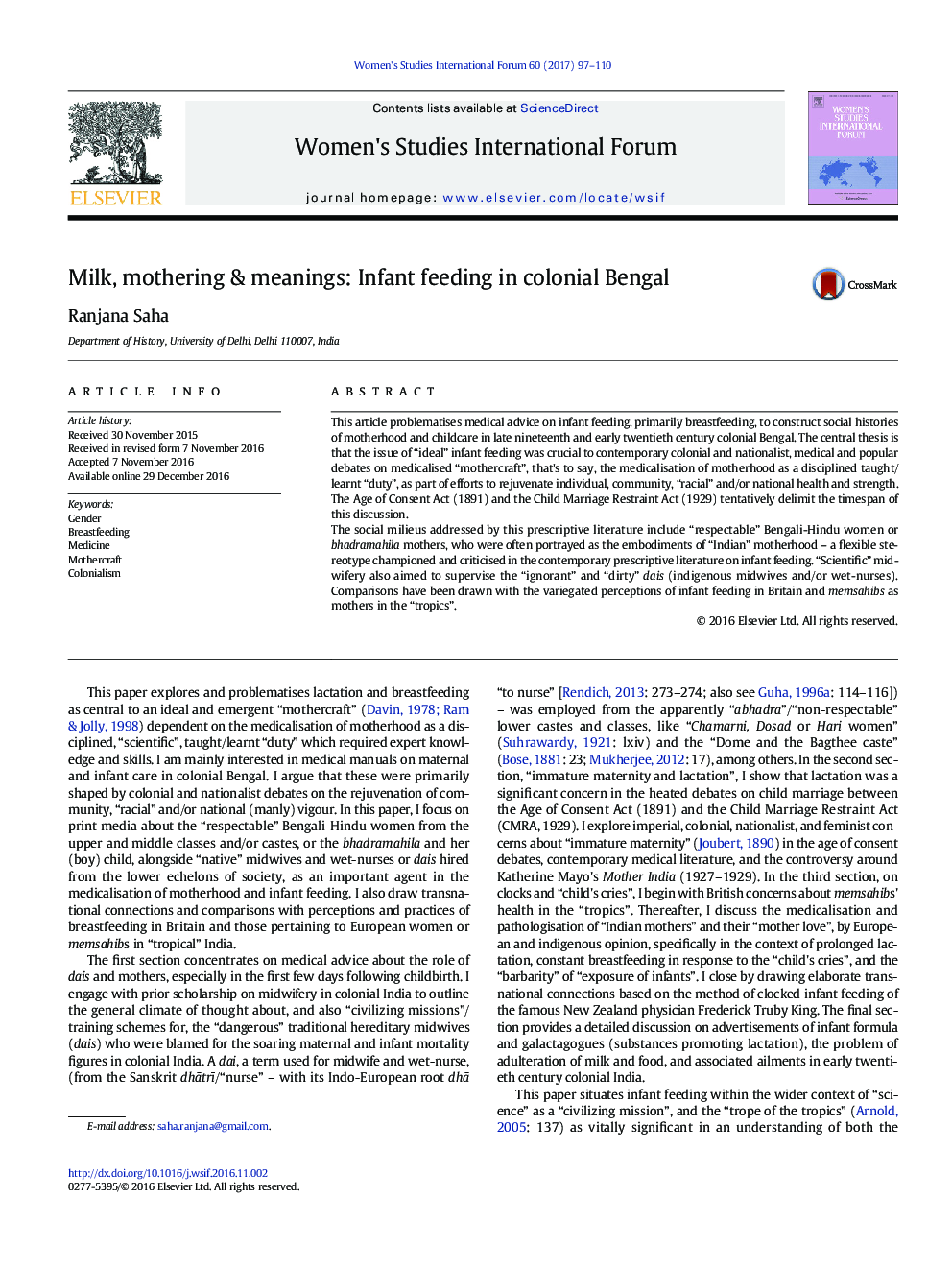| کد مقاله | کد نشریه | سال انتشار | مقاله انگلیسی | نسخه تمام متن |
|---|---|---|---|---|
| 4941981 | 1436873 | 2017 | 14 صفحه PDF | دانلود رایگان |
This article problematises medical advice on infant feeding, primarily breastfeeding, to construct social histories of motherhood and childcare in late nineteenth and early twentieth century colonial Bengal. The central thesis is that the issue of “ideal” infant feeding was crucial to contemporary colonial and nationalist, medical and popular debates on medicalised “mothercraft”, that's to say, the medicalisation of motherhood as a disciplined taught/learnt “duty”, as part of efforts to rejuvenate individual, community, “racial” and/or national health and strength. The Age of Consent Act (1891) and the Child Marriage Restraint Act (1929) tentatively delimit the timespan of this discussion.The social milieus addressed by this prescriptive literature include “respectable” Bengali-Hindu women or bhadramahila mothers, who were often portrayed as the embodiments of “Indian” motherhood - a flexible stereotype championed and criticised in the contemporary prescriptive literature on infant feeding. “Scientific” midwifery also aimed to supervise the “ignorant” and “dirty” dais (indigenous midwives and/or wet-nurses). Comparisons have been drawn with the variegated perceptions of infant feeding in Britain and memsahibs as mothers in the “tropics”.
Journal: Women's Studies International Forum - Volume 60, JanuaryâFebruary 2017, Pages 97-110
